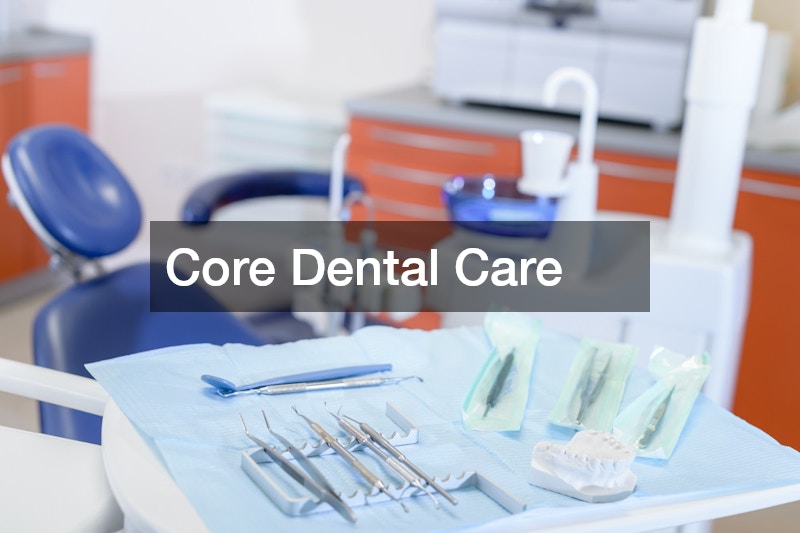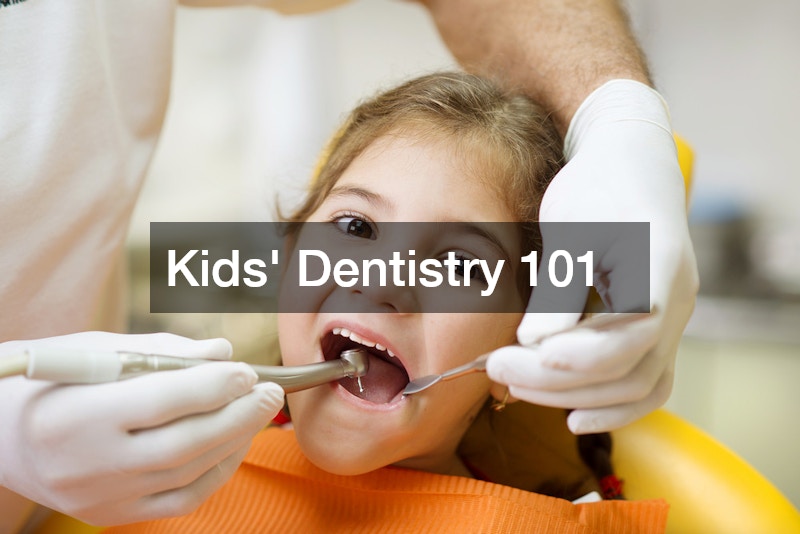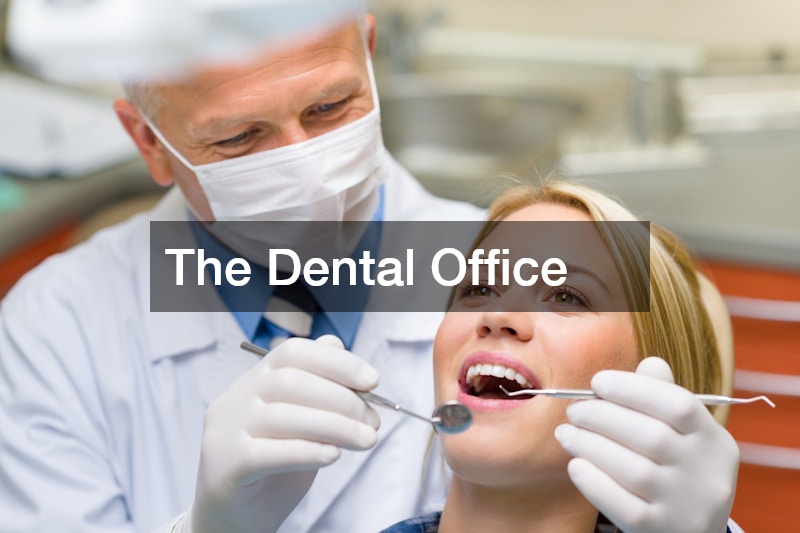How do we define general dentistry? It holds a vital position, providing comprehensive dental care for individuals of all ages. This field encompasses a broad range of services aimed at maintaining oral health and preventing dental issues. Whether through routine check-ups or necessary interventions, general dentists are essential for ensuring overall well-being and promoting good dental hygiene practices.
General dentistry is more than just routine cleanings; it is a holistic approach to dental health that includes preventive measures, diagnostics, and treatment. If we were to define general dentistry, its goal is to empower patients by educating them about proper dental care and addressing their unique oral health needs. As such, it plays a crucial role in enhancing not just dental aesthetics but also overall health, contributing to one’s self-confidence and quality of life.
At its core, general dentistry is built upon the foundation of maintaining good oral health through various services and treatments. Dentists in this field understand the individual differences among patients and customize their care based on specific needs, making general dentistry an essential touchstone in maintaining lifelong oral health.
Daily Dental Service
The daily tasks performed by a general dentist include a diverse range of dental services that cater to individuals’ varied needs. Routine examinations, cleanings, and preventive treatments are crucial components of a daily dental service that aim to detect potential problems before they escalate into more significant concerns. Regular visits to a dental office can help instill healthy habits and promote a better understanding of personal dental care.
On a more specific note, daily dental services provided in general dentistry include preventive care, restorative treatments, and patient education. Preventive care involves routine check-ups and cleanings that help uncover issues like cavities and gum disease early. Restorative treatments, such as fillings and crowns, address existing problems while maintaining the overall integrity of oral health.
Daily dental services also encompass emergency treatments for urgent issues, patient consultations, and follow-ups. These services contribute significantly to a patient’s long-term health and wellness, reinforcing the crucial role of the dental service can define general dentistry. By offering comprehensive care, general dentists work collaboratively with patients to create tailored dental treatment plans that promote enduring oral health.
Core Dental Care

At the heart of general dentistry lies core dental care, a concept aimed at providing essential treatments that maintain oral health. Core dental care encompasses preventive measures such as cleanings and examinations, as well as restorative services such as fillings and extractions. This foundational aspect of general dentistry ensures that patients receive comprehensive care tailored to their unique dental needs.
Delving deeper, core dental care within general dentistry refers to the combination of preventive, restorative, and basic cosmetic services that ensure the health of one’s teeth and gums. Regular cleanings and check-ups help identify issues early on, reducing the need for extensive dental treatment later. Additionally, restorative services like dental treatments (fillings, crowns, and bridges) address existing dental problems while enhancing the functionality and aesthetics of smiles.
Ultimately, core dental care in general dentistry focuses on creating a solid foundation for lasting oral health. In doing so, dentists educate their patients on proper hygiene and dietary choices that further support their dental health. By implementing effective core dental care strategies, individuals can reduce the risk of dental issues over time and maintain a radiant smile.
Cosmetic Basics
Cosmetic procedures in part define general dentistry, allowing dentists to improve the aesthetics of their patients’ smiles. Numerous options, ranging from teeth whitening to veneers, have made it more accessible for individuals to achieve their desired appearance. A cosmetic dentist can guide patients through these options, helping them make informed decisions about their oral aesthetics.
Specifically, cosmetic basics within general dentistry focus on techniques that enhance the visual appeal of teeth while also improving overall health. This may include procedures such as bonding, contouring, and the application of veneers to correct imperfections in shape or alignment. Utilizing cosmetic dental innovations enables individuals to attain a more polished appearance and boosts their confidence.
Moreover, cosmetic treatments in general dentistry are not just about aesthetics; they often serve functional purposes as well. For example, correcting bite issues or restoring broken teeth can significantly impact an individual’s ability to chew and speak properly. By seamlessly integrating cosmetic basics into their practices, general dentists contribute to comprehensive oral health solutions that enhance the quality of life for their patients.
Kids’ Dentistry 101

Children’s dentistry is a specialized area within general dentistry dedicated to addressing the unique dental needs of younger patients. It adapts care strategies to accommodate children’s developing teeth and ensures that early experiences are positive and educational. Focused on education and prevention, kids’ dentistry emphasizes the importance of establishing healthy oral habits from an early age.
Specifically, kids’ dentistry involves regular check-ups, monitoring the development of primary and permanent teeth, and administering preventive treatments. Children are typically susceptible to dental caries, making it crucial for general dentists to provide fluoride treatments and sealants. This proactive approach helps mitigate the risk of decay and lays the groundwork for future dental care.
Additionally, children’s dentistry recognizes the importance of psychological factors in a kid’s dental experience. Dentists trained in kids’ dentistry utilize child-friendly techniques to create a comfortable and engaging environment, alleviating anxiety. By fostering positive associations, general dentists can encourage lifelong dental health practices and empower children to take an active role in their oral hygiene.
Child Care Focus
Child dental care is another critical focus within general dentistry intended to safeguard children’s oral health. Establishing a foundation of good dental habits from a young age can have long-term effects on a child’s overall well-being. General dentists play a pivotal role in educating parents and children about proper hygiene and the importance of regular visits to the dental office.
In a more specific context, child dental care includes tailored preventive treatments and education focusing on young patients. General dentists assess children’s dental health by checking for cavities, bite issues, and the proper growth of their teeth and jaws. Providing age-appropriate education on brushing and flossing helps instill good habits that will last throughout their lifetime.
Furthermore, child dental care encompasses creative strategies to make routine visits enjoyable and stress-free. General dentists may use rewards systems, positive reinforcement, and child-friendly language to build a healthy relationship with their young patients. By ensuring a supportive atmosphere, general dentists foster a sense of confidence in children, helping them develop a proactive attitude toward their dental care.
The Dental Office

The dental office serves as the cornerstone of care for general dentistry, providing an environment where patients can receive a variety of treatments. It is more than just a clinical setting; it is a place where oral education, preventive care, and restorative treatments come together. The atmosphere and organization of a dental office can influence a patient’s experience and overall satisfaction.
As we define general dentistry, the layout of a dental office is carefully crafted to promote comfort and efficiency. Treatment rooms are equipped with advanced tools and technology to facilitate various services, from routine cleanings to more complex procedures. Creating an inviting and cozy ambiance can significantly reduce anxiety among patients, encouraging them to prioritize their oral health.
Additionally, the dental office is staffed by a team of professionals dedicated to enhancing patient experience and ensuring seamless care. General dentists, hygienists, and administrative staff work in unison to provide high-quality service to patients. By fostering a positive dynamic and respecting patient needs, the dental office becomes an integral part of the journey toward improved dental health, and can thereby define general dentistry.
Use of Crowns
Dental crowns are among the numerous restorative options available within general dentistry, offering durable solutions for compromised teeth. Crowns are often used to protect severely damaged or decayed teeth, providing both strength and aesthetic appeal. The versatility of crowns allows general dentists to address a variety of dental concerns effectively.
Specifically, the use of dental crowns help define general dentistry. They involve understanding when they are necessary and the options available for their material and design. Crowns can be made from various materials, including porcelain, metal, or a combination of both, depending on the location of the tooth and aesthetic goals. The placement of a crown generally involves reshaping the existing tooth, ensuring that it can effectively support the crown and blend in with surrounding teeth.
Moreover, dental crowns serve a functional purpose by restoring chewing ability and maintaining proper bite alignment. They can also prevent future fractures, making them essential for individuals with weakened teeth. Providing comprehensive education about the benefits of dental crowns further reinforces the dentist’s commitment to promoting long-term oral health, defining general dentistry as a multifaceted discipline focused not only on aesthetics but on functionality as well.
Not for Pet Care

General dentistry is primarily focused on human dental health and is tailored to meet the needs of patients rather than pets. While pet care is crucial, it’s important to distinguish between the two when seeking dental services. Each profession has its expertise and specialization, which play a vital role in ensuring patient well-being.
Specifically, to define general dentistry, the field gears its treatments toward procedures and practices that are unique to humans. This includes preventive, restorative, and cosmetic treatments customized for individual dental care needs. Addressing conditions like cavities, gum disease, and malocclusion falls within the purview of general dentists, ensuring that human patients receive the highest quality of care.
Surgeons vs Dentists
While trying to define general dentistry and oral surgery, we notice they share the common goal of improving dental health, they are distinct in their scope and techniques. General dentists offer a comprehensive range of services aimed at preventive care, diagnostics, and basic restorative procedures. In contrast, cosmetic surgeons specialize in more complex surgical interventions designed to enhance facial aesthetics and address severe dental issues.
Specifically, the difference between general dentists and cosmetic surgeons lies in their level of training and the types of procedures they perform. General dentists focus on maintaining oral health through everyday services like cleanings and fillings, while cosmetic surgeons may perform advanced procedures like jaw reconstruction or complex implant surgeries. Each professional plays a crucial role in ensuring patients achieve not only health but also a satisfying appearance.
Well-being Ties
General dentistry is intrinsically linked to an individual’s overall well-being, reinforcing the idea that oral health significantly impacts physical and mental health. The mouth is often referred to as a window to the body, as oral conditions can reflect systemic diseases and health issues. Thus, maintaining good dental hygiene and routine care can lead to better health outcomes down the line.
On a more specific note, well-being ties within general dentistry consist of the relationship between oral health and diverse health complications, such as diabetes, heart disease, and even respiratory conditions. Poor dental hygiene can lead to inflammatory processes that affect overall health, making it essential for individuals to understand the importance of regular dental check-ups. Dentists help educate patients about the potential repercussions of neglecting oral health and emphasize preventive care as a primary approach.
The characteristics that define general dentistry encompass a wide array of essential services aimed at promoting oral health and overall well-being. From daily dental services and core treatments to specialized cosmetic procedures, general dentistry is geared toward meeting the unique needs of patients. It plays a crucial role in reinforcing preventive care, providing education, and ensuring long-term patient health.
Through targeted interventions, such as childrens dentistry and tailored crowns, general dentists work diligently to enhance the dental experience for all ages. The distinct roles of dentists, the importance of dental offices, and the ties between well-being and oral health further illustrate the holistic approach of general dentistry. Practitioners understand the value of patient comfort, and with their knowledge and skills, they empower individuals to take charge of their dental health.
The integration of various dental specialties into general dentistry epitomizes the comprehensive nature of care that is required for robust oral health. By understanding these characteristics, patients can appreciate the full scope of general dentistry and the profound impact it can have on their lives. Providing not only dental service but also contributing to greater well-being, general dentistry undeniably stands as a pillar of health in our communities.

